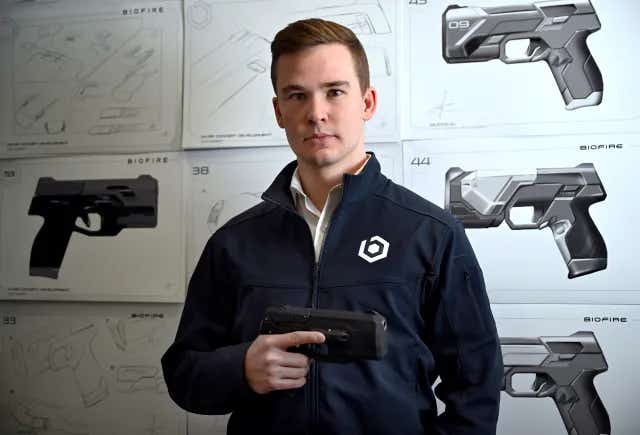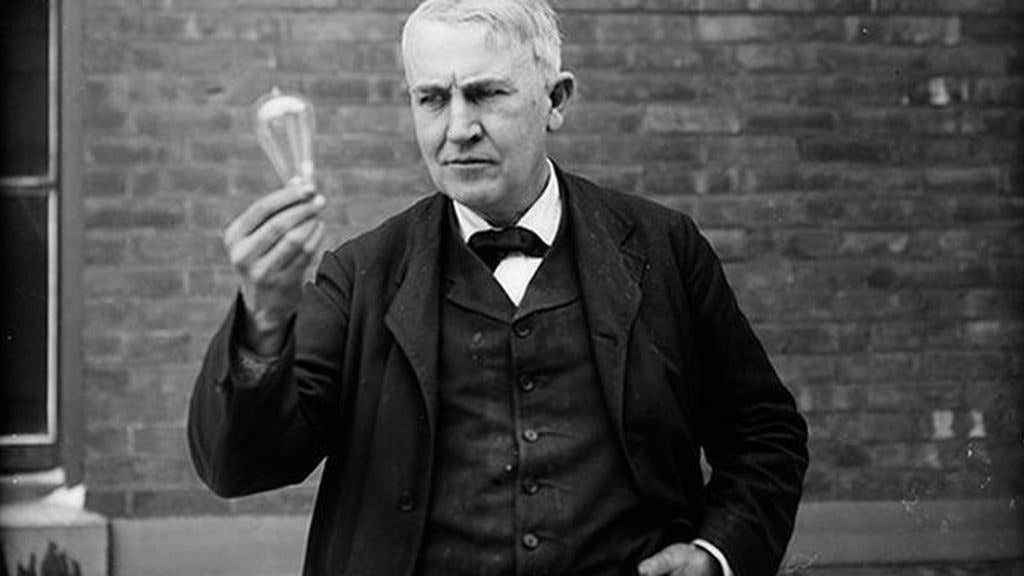America’s first smart gun with facial and fingerprint recognition is now available
The company promises a firearm equipped with fingerprint and facial recognition technology, ensuring it only fires by authorized users

The company promises a firearm equipped with fingerprint and facial recognition technology, ensuring it only fires in the hands of authorized users. (CREDIT: Biofire)
Biofire, a Colorado-based startup, is gearing up to launch America's premier biometric "smart gun," set to hit the market by the end of the month. Unlike previous attempts that stumbled, the company promises a firearm equipped with fingerprint and facial recognition technology, ensuring it only fires in the hands of authorized users.
The innovation targets a critical need: a weapon readily accessible for home defense yet impervious to unauthorized use, especially by children.
As Biofire prepares to introduce its product, it navigates a delicate balance, seeking acceptance from both gun enthusiasts and skeptics while sidestepping potential backlash from the gun-rights movement.
Biofire's biometric weapon uses fingerprint and facial recognition to identify authorized users. (CREDIT: Biofire)
The company underscores safety and the prevention of unauthorized access, garnering praise from gun control advocates, while also forging ties with the gun industry and resisting governmental mandates for biometric features to allay fears of encroaching gun control.
The pivotal question looms: Does the technology deliver on its promises? Pierre Salomon, a firearms training company owner in Massachusetts, expresses skepticism, echoing concerns about the technology's reliability in life-threatening situations.
However, Kai Kloepfer, Biofire's CEO, asserts the gun's reliability and extensive testing, highlighting its unique design that eschews traditional trigger mechanisms for an electric signal triggered by an authorized user's grip.
Related Stories
Kloepfer's journey began as a high school student rattled by the 2012 Aurora theater shooting, leading him to drop out of MIT to focus on developing the smart gun.
With substantial funding, Biofire prepares to distribute its first batch to investors, friends, and select individuals, gradually expanding to paid customers, including first-time gun owners.
The smart gun accommodates up to five authorized users, instantly firing upon grip and disabling the trigger mechanism upon release, aiming to prevent accidents, thefts, and misuse. Despite concerns about the technology's effectiveness when users' faces and hands are obscured, Biofire emphasizes its intended use in home settings, illustrating scenarios where the gun could be stored safely within reach yet inaccessible to unauthorized individuals.
The version of the Biofire smart gun demonstrated for NPR. On the left, the fingerprint sensor can be seen on the gun grip. On the right, the facial recognition sensor can be seen on the back. The green lights indicate that the gun is unlocked. (CREDIT: Ryan Lucas/NPR)
While federal regulations do not specifically govern firearm safety, Biofire asserts compliance with consumer electronics safety standards and handgun safety regulations established by some states. Kloepfer touts the technology's reliability compared to smartphones, citing rigorous testing under various conditions and a long-lasting battery.
Advocates view smart guns as a vital tool in reducing gun-related injuries and deaths.
Joe Biden's support for smart gun technology underscores its potential impact, signaling a shift toward safer firearms. However, gun-rights advocates remain cautious, wary of potential government overreach and concerns about remote disabling. Aidan Johnston, representing Gun Owners of America, voices skepticism, echoing past controversies surrounding smart guns.
Biofire asserts compliance with consumer electronics safety standards and handgun safety regulations established by some states. (CREDIT: Biofire)
The tumultuous history of smart guns, exemplified by Armatix's failed attempt in 2014, underscores the challenges Biofire faces. Armatix's setback, exacerbated by New Jersey's ill-fated legislation mandating smart gun inventories, serves as a cautionary tale.
Biofire distances itself from Armatix's fate, opposing similar legislation and opting for direct sales through its website to circumvent regulatory hurdles.
Despite the uncertainties, Biofire remains optimistic, eyeing a market eager for enhanced home defense options. While acknowledging the steep price tag, potential customers like KiOwana Phillips, an active-duty Army sergeant major, express interest in the biometric security features, envisioning a balance between accessibility and safety for their families.
As Biofire prepares to introduce its smart gun to the market, its success hinges on fulfilling promises of reliability and safety while navigating a landscape shaped by competing interests and past failures.
Whether the technology achieves widespread acceptance remains to be seen, but its potential to reshape firearm safety underscores the significance of Biofire's endeavor.
For more science news stories check out our New Discoveries section at The Brighter Side of News.
Note: Materials provided above by Ohio State University. Content may be edited for style and length.
Like these kind of feel good stories? Get the Brighter Side of News' newsletter.



